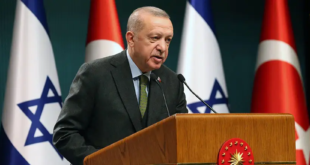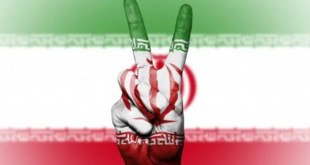BAGHDAD (AP) — Iraqi officials finished the new constitution Sunday but failed to win the endorsement of Sunni Arab negotiators, a major setback for the Bush administration strategy to lure Sunnis away from the insurgency and hasten the day US troops can go home.
Absence of Sunni Arab endorsement, after more than two months of intensive negotiation, raises fears of more insurgent violence and sets the stage for a bitter political fight ahead of an October 15 referendum where voters will decide whether to approve the document.
A political battle that splits along religious community and ethnic lines threatens to sharpen communal divisions at a time when relations among the Shiites, Sunni Arabs and Kurds appear to be worsening.
Despite last-minute concessions from the majority Shiites and Kurds, the Sunnis said the document threatened the unity of Iraq and its place in the Arab world.
“We will work for the mobilisation of the population to reject the draft” in the referendum, influential Sunni leader Adnan Dulaimi told Jazeera television.
Ibrahim Shammari, spokesman of a leading insurgent group, the Islamic Army in Iraq, said on Jazeera that the constitution “drafted under the supervision of the occupiers” would divide Iraq and benefit Israel.
Sunni negotiators delivered their rejection in a joint statement shortly after the draft was submitted parliament.
They branded the final version as “illegitimate” and asked the Arab League, the United Nations and “international organisations” to intervene “so that this document is not passed.” “I think if this constitution passes as it is, it will worsen everything in the country,” Sunni negotiator Saleh Mutlaq said.
For the Sunnis, major debreaker issues included federalism, Iraq’s identity in the Arab world, and references in the draft to Saddam Hussein’s Sunni-dominated Baath Party.
Sunnis fear federalism would lead to the breakup of the country into a Kurdish north and Shiite south. They fear such a move would deprive Sunnis of Iraq’s vast oil wealth concentrated at opposite ends of the country and open the door to Iranian influence in the Shiite south.
Sunnis wanted no reference at all to Saddam’s party, fearing that would lead to widespread purges of Sunnis from government jobs and public life.
In Crawford, Texas, President George W. Bush expressed disappointment that the Sunnis did not sign on but pinned his hopes on the October 15 referendum.
“Some Sunnis have expressed reservations about various provisions in the constitution and that’s their right as free individuals in a free society,” Bush told reporters.
He said the referendum was a chance for Iraqis to “set the foundation for a permanent Iraqi government.” But the depth of disillusionment over the charter in the Sunni establishment extends beyond the 15 negotiators, who were appointed to the constitutional committee in June under US pressure.
The country’s Sunni vice president, Ghazi Yawer, didn’t show up at a Sunday ceremony marking completion of the document. When President Jalal Talabani said that Yawer was ill, senior government officials including Deputy Prime Minister Ahmad Chalabi howled with laughter.
A top Sunni who did attend the ceremony, Parliament Speaker Hajim Hassani, said he thought the final document contained “too much religion” and too few womens’ rights and would be hard to sell it to the Sunnis.
Hassani, who was not part of the Sunni negotiating team, said the Shiites and Kurds, who dominate parliament, should have been more accommodating to the Sunnis. The Shiite-Kurdish bloc won 221 of the 275 National Assembly seats because many Sunnis boycotted the January 30 election.
“I think to them, they won the election… so it is an opportunity to them to get whatever they want,” Hassani told reporters. “If I was in their camp, I would have been more generous… In my judgement, they did not play the politics very well” and that will hurt them in the long run.
Although Sunnis account for only 20 per cent of Iraq’s estimated 27 million people, they still can derail the constitution in the referendum due to a concession made to the Kurds in the 2004 interim constitution. If two-thirds of voters in any three provinces reject the charter, the constitution will be defeated. Sunnis have the majority in at least four provinces.
Defeat of the constitution would force new elections for a parliament which would begin the drafting process from scratch.
Communal tensions have risen since the Shiite-dominated government was announced April 28. Both Shiites and Sunnis accuse one another of assassinating members of the rival sects. Shiites and Kurds dominate the government security services, while most insurgents are believed to be Sunnis.
On Sunday, the head of the government’s Sunni charity association, Ahmed Abdul Ghafour Samarrai, said bodies of 36 men found last week dumped in a dry riverbed near the Iranian border were Sunnis. The men had been shot in the head execution-style, and some had hands bound.
For the United States, one of the few silver linings in the bitter constitutional debate is that it has convinced many Sunnis that they made a profound mistake by boycotting the January 30 election and should take part in the political process.
So few Sunnis were elected that their constitution negotiators had to be appointed, reducing their influence on the committee.
Sunni clerics, who were at the forefront of the boycott campaign, are now urging their followers to register for the referendum and the December national election — although against the constitution.
Radical Shiite cleric Moqtada Sadr, who has considerable influence, has broken with other Shiites and spoken out against the constitution. Sadr has been making overtures to hardline Sunni clerics in a common front against the draft and the US presence here.
The document included some relatively minor amendments which the Shiites offered after Bush telephoned Shiite leader Abdul-Aziz Hakim and urged him to compromise.
They included striking the word “party” from the phrase “Saddam’s Baath Party,” could enable a future Baath Party to emerge, and allowing a future parliament to work out rules for implementing federalism.
The draft was read in its entirety to parliament by members of the drafting committee but no vote was taken as none was legally required. At one time, officials wanted a vote as an affirmation of unity.
But that idea was shelved because of Sunni objections to the document and repeated delays in finalising the draft.
Sheikh Humam Hammoudi, a Shiite and chairman of the drafting committee, said the constitution “guarantees freedoms and equalises between everyone, women and men and different ethnic groups and respects the ideologies of this nation and the religion of this society.” He said five million copies of the constitution will be circulated nationwide in food allotments each Iraqi family receives monthly from the government. Unlike the January elections, Iraqis will not be allowed to vote outside the country because of the difficult in applying the three-province veto.
 Eurasia Press & News
Eurasia Press & News



